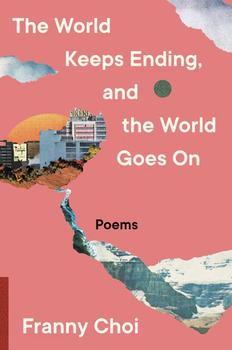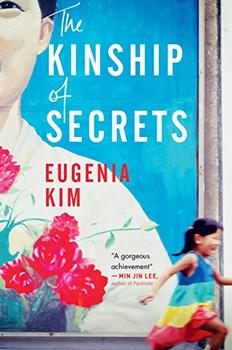Summary | Excerpt | Reading Guide | Reviews | Beyond the book | Read-Alikes | Genres & Themes | Author Bio

A shimmering, variegated collection - like an abalone shell whose tough exterior covers beauty accrued layer by layer - Krys Lee's debut is not for readers who expect immediate rewards in the form of lighthearted stories that feature immigrants learning a new culture. Instead, these nine masterful selections explore the brutal side of starting over in America and the emotional toll on families that remained in or returned to Korea after the country's division. Like the titular "Drifting House," home becomes an unmoored, shifting concept; characters find themselves caught between shores - past and present, tradition and modernity, and at times, shamanism and religion.
In these stories, incidents of self-harm take place in acts that range from cutting to suicide by drowning. A brother kills his younger sister in the belief that death is more merciful than starvation. An incestuous encounter occurs between a father and his teenaged daughter after her mother has been institutionalized for murdering a neighborhood boy. A salaried man falls into homelessness and does what he must in the name of self-defense. A half-Korean, half-American girl's life is on the fringes in post-war Seoul. And, in one of the most eloquent stories, a precocious stepson resolves to "never allow anything bad to happen to himself" and to "hurtle into the present" after realizing that his stepfather is plagued by memories.
If such pain seems unbearable, it must be appreciated in context - war and its aftermath looms in the psyche of Lee's characters, though war itself is not the main subject, and Lee is careful to avoid suggesting that tragic outcomes are inevitable for survivors, their children, and their communities. While many of the characters are not relieved of their burdens, they still emerge as complex figures whose circumstances reveal occasional grace. Amid darker scenes and frank sexuality, such instances deserve special mention.
In one of the standouts, "The Goose Father," a father stays behind in Seoul after his family has moved to the United States. Upon taking a boarder who believes in reincarnation, he is startled to hear "the world's full of mystery - it's our duty to accept it," a moment that allows him to view life in a more expansive way and to start being more honest about his desires. Lee handles the gradual transition from skepticism to reawakening with admirable ease and introduces an otherworldly character seamlessly.
In the story "At the Edge of the World," a blended family's attempt at normalcy is tempered by the main character's affection for a neighbor's daughter, an interlude as charming as it is forthright in highlighting their differences. In "A Small Sorrow," a wife finds her own form of erotic freedom and a new determination even though her husband is "incapable of change."
Other stories permit characters opportunities for respite amid personal anguish, but The Drifting House mainly conveys discomforting experiences. Lee reminds readers (with a welcome absence of nihilism) that hardship is worth paying attention to, not just for the empathy it draws forth, or for the strength found in characters who manage to come out on the other side, but for its ability to connect people across time and cultures. Especially recommended for fans of stories with a variety of younger narrators.
![]() This review was originally published in The BookBrowse Review in February 2012, and has been updated for the
January 2013 edition.
Click here to go to this issue.
This review was originally published in The BookBrowse Review in February 2012, and has been updated for the
January 2013 edition.
Click here to go to this issue.

If you liked Drifting House, try these:

The World Keeps Ending, and the World Goes On
by Franny Choi
Published 2023
From acclaimed poet Franny Choi comes a poetry collection for the ends of worlds—past, present, and future. Choi's third book features poems about historical and impending apocalypses, alongside musings on our responsibilities to each other and visions for our collective survival.

by Eugenia Kim
Published 2019
From the author of The Calligrapher's Daughter comes the riveting story of two sisters, one raised in the United States, the other in South Korea, and the family that bound them together even as the Korean War kept them apart.
Information is the currency of democracy
Click Here to find out who said this, as well as discovering other famous literary quotes!
Your guide toexceptional books
BookBrowse seeks out and recommends the best in contemporary fiction and nonfiction—books that not only engage and entertain but also deepen our understanding of ourselves and the world around us.